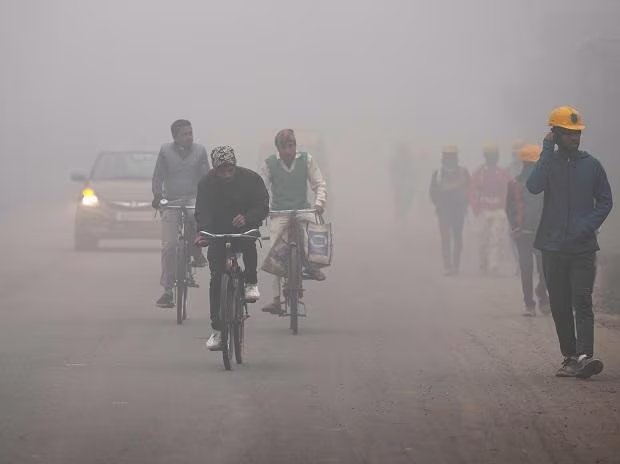
New Delhi: The India Meteorological Department (IMD) announced today that a western disturbance over North Pakistan and its associated trough has caused a notable drop in temperatures across North India. This weather system is gradually moving eastward, affecting regional weather patterns.
IMD scientist Soma Roy explained, “The western disturbance is currently situated over North Pakistan, with its trough around latitude 71-72. As it moves, we experienced significant rainfall yesterday, leading to a drastic temperature decrease across North West India this morning. For example, Delhi’s temperature has dropped by 2.8 degrees, while Safdarjung and Palam have seen decreases of 8.2 and 9.5 degrees, respectively.”
The IMD indicated that no significant further temperature declines are anticipated. “While temperatures may drop by one or two degrees across North India, it won’t be substantial. However, we expect a gradual increase starting tomorrow morning, with a rise of two to three degrees in North West India,” she added.
Additionally, another western disturbance is expected to affect the North Western Himalayas starting January 8. “This upcoming disturbance will bring snowfall activity from January 8 to 13. The current disturbance is expected to impact Arunachal Pradesh and North East Assam later today, with increased thunderstorm activity anticipated tonight and tomorrow,” the scientist noted.
The IMD clarified that other regions of the country will not experience significant weather changes. “In the rest of India, there will be little to no rainfall, except for the Western Himalayan region from January 8 onward. Minimum temperatures have already dropped slightly in North West India, but we expect them to begin rising again in the next few days, including in Delhi, where maximum temperatures remain notably above normal. Temperatures in Peninsular and East Central India will remain relatively stable,” the scientist concluded.
